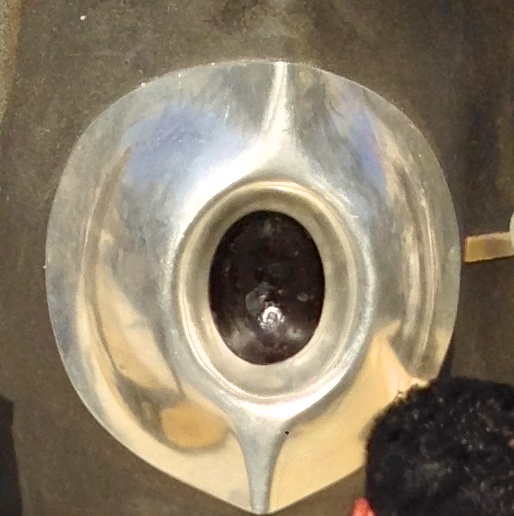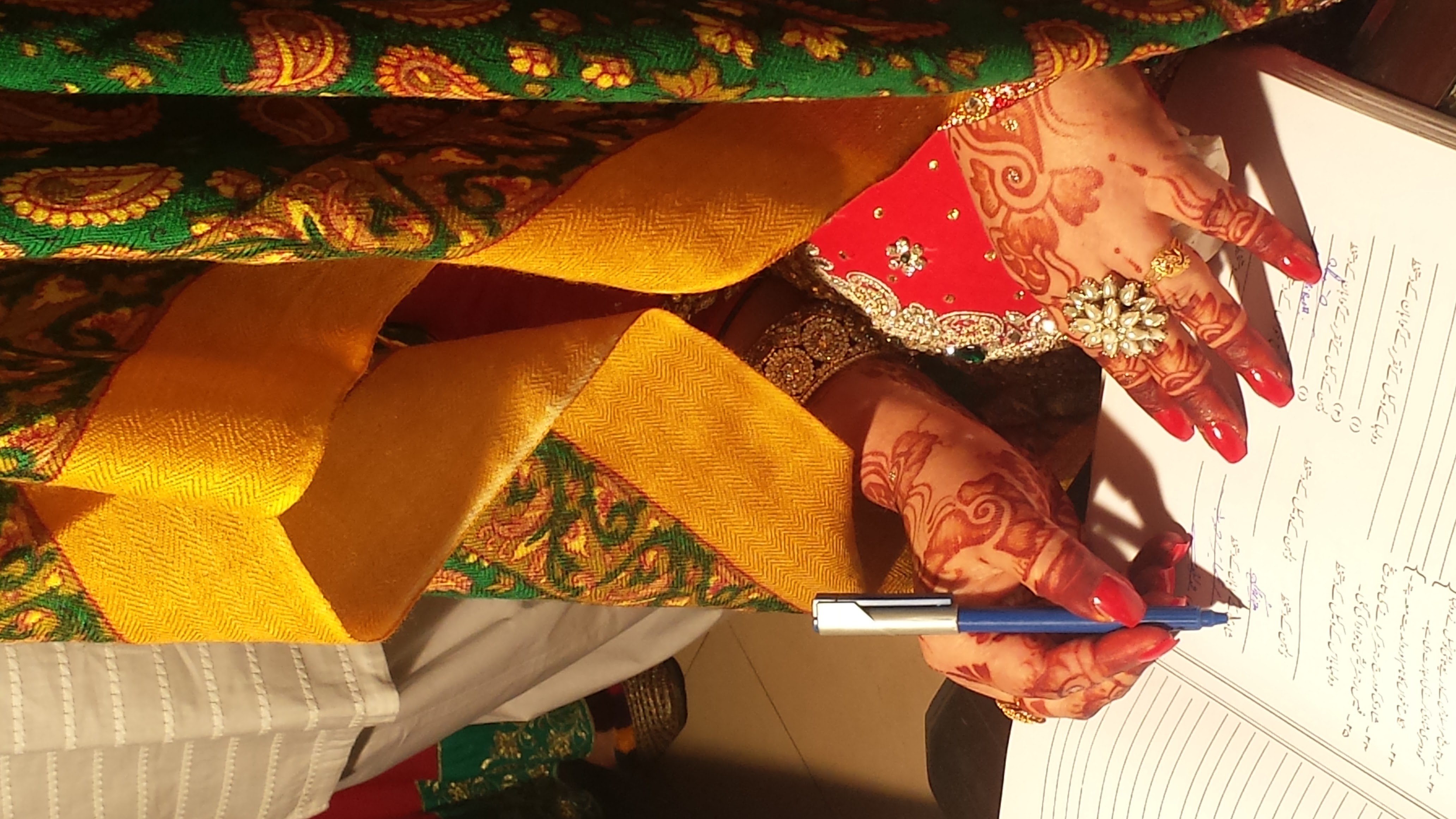|
History Of The Hajj
The hajj is a pilgrimage to Mecca performed by millions of Muslims every year, coming from all over the Muslim world. Its history goes back many centuries. The present pattern of the Islamic Hajj was established by Islamic prophet Muhammad, around 632 CE, who reformed the existing pilgrimage tradition of the pagan Arabs. According to Islamic tradition, the hajj dates from thousands of years earlier, from when Abraham, upon God's command, built the Kaaba (the "house of God"). This cubic building is considered the most holy site in Islam and the rituals of the hajj include walking repeatedly around it. In medieval times, pilgrims would gather in cities like Basra, Damascus, and Cairo to go to Mecca in groups and caravans comprising tens of thousands of pilgrims. Some came from further afield in sailing ships. The Sultans of the Ottoman Empire supported the pilgrims, appointing the Amir al-Hajj ("Commander of the Hajj") to organise and lead the caravans. As other modes of transpor ... [...More Info...] [...Related Items...] OR: [Wikipedia] [Google] [Baidu] |
Kaaba 2
The Kaaba (, ), also spelled Ka'bah or Kabah, sometimes referred to as al-Kaʿbah al-Musharrafah ( ar, ٱلْكَعْبَة ٱلْمُشَرَّفَة, lit=Honored Ka'bah, links=no, translit=al-Kaʿbah al-Musharrafah), is a building at the center of Islam's most important mosque, the Masjid al-Haram in Mecca, Saudi Arabia. It is the most Holiest sites in Islam, sacred site in Islam.Wensinck, A. J; Kaʿba. Encyclopaedia of Islam IV p. 317 It is considered by Muslims to be the ''Bayt Allah'' ( ar, بَيْت ٱللَّٰه, lit=House of God) and is the qibla ( ar, قِبْلَة, links=no, direction of prayer) for Muslims around the world when performing salah. The current structure was built after the original building was damaged during the Siege of Mecca (683), siege of Mecca in 683. In Early Islam (other), early Islam, Muslims faced in the general direction of Jerusalem as the qibla in their prayers before changing the direction to face the Kaaba, believed by Musli ... [...More Info...] [...Related Items...] OR: [Wikipedia] [Google] [Baidu] |
Bedouin
The Bedouin, Beduin, or Bedu (; , singular ) are nomadic Arab tribes who have historically inhabited the desert regions in the Arabian Peninsula, North Africa, the Levant, and Mesopotamia. The Bedouin originated in the Syrian Desert and Arabian Desert but spread across the rest of the Arab world in West Asia and North Africa after the spread of Islam. The English word ''bedouin'' comes from the Arabic ''badawī'', which means "desert dweller", and is traditionally contrasted with ''ḥāḍir'', the term for sedentary people. Bedouin territory stretches from the vast deserts of North Africa to the rocky sands of the Middle East. They are traditionally divided into tribes, or clans (known in Arabic as ''ʿašāʾir''; or ''qabāʾil'' ), and historically share a common culture of herding camels and goats. The vast majority of Bedouins adhere to Islam, although there are some fewer numbers of Christian Bedouins present in the Fertile Crescent. Bedouins have been referred ... [...More Info...] [...Related Items...] OR: [Wikipedia] [Google] [Baidu] |
Shibli Nomani
Shibli Nomani ( ur, – ; 3 June 1857 – 18 November 1914) was an Islamic scholar from the Indian subcontinent during the British Raj. He was born at Bindwal in Azamgarh district of present-day Uttar Pradesh.Versatile Scholar Shibli Nomani remembered today Associated Press Of Pakistan website, Published 18 November 2019, Retrieved 16 July 2020 He is known for the founding of the Shibli National College in 1883 and the Darul Mussanifin (House of Writers) in Azamgarh. As a supporter of the |
Black Stone
The Black Stone ( ar, ٱلْحَجَرُ ٱلْأَسْوَد, ', 'Black Stone') is a rock set into the eastern corner of the Kaaba, the ancient building in the center of the Grand Mosque in Mecca, Saudi Arabia. It is revered by Muslims as an Islamic relic which, according to Muslim tradition, dates back to the time of Adam and Eve. The stone was venerated at the Kaaba in pre-Islamic pagan times. According to Islamic tradition, it was set intact into the Kaaba's wall by the Islamic prophet Muhammad in 605 CE, five years before his first revelation. Since then, it has been broken into fragments and is now cemented into a silver frame in the side of the Kaaba. Its physical appearance is that of a fragmented dark rock, polished smooth by the hands of pilgrims. Islamic tradition holds that it fell from heaven as a guide for Adam and Eve to build an altar. It has often been described as a meteorite. Muslim pilgrims circle the Kaaba as a part of the ''tawaf'' ritual during the ''ha ... [...More Info...] [...Related Items...] OR: [Wikipedia] [Google] [Baidu] |
Quran
The Quran (, ; Standard Arabic: , Classical Arabic, Quranic Arabic: , , 'the recitation'), also romanized Qur'an or Koran, is the central religious text of Islam, believed by Muslims to be a revelation in Islam, revelation from God in Islam, God. It is organized in 114 surah, chapters (pl.: , sing.: ), which consist of āyah, verses (pl.: , sing.: , construct case, cons.: ). In addition to its religious significance, it is widely regarded as the finest work in Arabic literature, and has significantly influenced the Arabic language. Muslims believe that the Quran was orally revealed by God to the Khatam an-Nabiyyin, final prophet, Muhammad in Islam, Muhammad, through the archangel Gabriel incrementally over a period of some 23 years, beginning in the month of Ramadan, when Muhammad was 40; and concluding in 632, the year of his death. Muslims regard the Quran as Muhammad's most important miracle; a proof of his prophethood; and the culmination of a series of divine message ... [...More Info...] [...Related Items...] OR: [Wikipedia] [Google] [Baidu] |
Marriage In Islam
In Islam, nikah is a contract between two people. Both the groom and the bride are to consent to the marriage of their own free wills. A formal, binding contract – verbal or on paper – is considered integral to a religiously valid Islamic marriage, and outlines the rights and responsibilities of the groom and bride. Divorce in Islam can take a variety of forms, some executed by a husband personally and some executed by a religious court on behalf of a plaintiff wife who is successful in her legal divorce petition for valid cause. In addition to the usual marriage until death or divorce, there is a different fixed-term marriage known as ("temporary marriage") permitted only by the Twelver branch of Shi'ite for a pre-fixed period.Berg, H"Method and theory in the study of Islamic origins" Brill 2003 , 9789004126022. Accessed at Google Books 15 March 2014.Hughes, T"A Dictionary of Islam." Asian Educational Services 1 December 1995. Accessed 15 April 2014.Pohl, F"Muslim world ... [...More Info...] [...Related Items...] OR: [Wikipedia] [Google] [Baidu] |
Al-Safa And Al-Marwah
Safa and Marwa ( ar, ٱلصَّفَا وَٱلْمَرْوَة, Aṣ-Ṣafā wal-Marwah) are two small hills, connected to the larger Abu Qubais and Qaiqan mountains, respectively, in Mecca, Saudi Arabia, now made part of the Masjid al-Haram. Muslims travel back and forth between them seven times in what is known as Sa'ee ( ar, سَعِي, lit=seeking/searching or walking, translit=sa'iy) ritual pilgrimages of '' Ḥajj'' and ''Umrah''. Muslims walk between the two mountains (called ''Sa'ee''), which they believe was made a ritual as a tribute to Hajar's search for water in the area when she ran out of provisions after Ibrahim left her in the valley upon Allah's command. The space between the two mountains in which the pilgrims walk is called ''al-Mas'aa''. Geography Safa is a small mountain located at the bottom of the Abu Qubais Mountain, about 130 meters (430 ft) southeast of the Ka'bah, which is the beginning of the Sa'ee. As for Marwa, it is also a small mountain of w ... [...More Info...] [...Related Items...] OR: [Wikipedia] [Google] [Baidu] |
Ishmael In Islam
Ismail ( ar, إِسْمَاعِيْل, ʾIsmāʿīl) is regarded as a prophet and messenger and the ancestor to the Ishmaelites in Islam. He is the son of Ibrahim (Abraham), born to Hajar (Hagar). Ismail is also associated with Mecca and the construction of the Kaaba''.'' Ismail is considered the ancestor to Muhammad. Ismail is the figure known as Ishmael in Judaism and Christianity. These sources include the Quran, Quranic commentary (tafsir), ''hadith'', historiographic collections like that of Muhammad ibn Jarir al-Tabari, and '' Isra'iliyat'' (Islamic texts about Biblical or ancient Israelite figures that originate from Jewish or Christian sources). Quranic narrative of Ishmael Birth Ishmael was the first son of Abraham; his mother was Hagar. There are many versions of the story, some of which include a prophecy about Ishmael's birth. One such example is from Ibn Kathir (d.1373) whose account states that an angel tells the pregnant Hagar to name her child Ishmael and pr ... [...More Info...] [...Related Items...] OR: [Wikipedia] [Google] [Baidu] |
Ishmael
Ishmael ''Ismaḗl''; Classical/Qur'anic Arabic: إِسْمَٰعِيْل; Modern Standard Arabic: إِسْمَاعِيْل ''ʾIsmāʿīl''; la, Ismael was the first son of Abraham, the common patriarch of the Abrahamic religions; and is considered as a prophet in Islam. His mother was the Egyptian Hagar (). According to the Genesis account, he died at the age of 137 (). Jewish, Christian and Islamic traditions consider Ishmael to be the ancestor of the Ishmaelites (Hagarenes or Arabians) and patriarch of Qaydār. According to Muslim tradition, in which he is regarded as an ancestor of Muhammad,''A–Z of Prophets in Islam and Judaism'', Wheeler, ''Ishmael'' Ishmael thereby founded a great nation as promised by God in the Old Testament, and was buried with his mother Hagar ( Hājar) next to the Kaaba in Mecca, under the area demarcated by the semi-circular Hijr Ismail wall. Etymology The name "Yishma'el" existed in various ancient Semitic cultures, including early Babylonian ... [...More Info...] [...Related Items...] OR: [Wikipedia] [Google] [Baidu] |
Hagar In Islam
Hājar ( ar, هَاجَر), known as Hagar in the Hebrew Bible, was the wife of the patriarch and Islamic prophet Ibrāhīm (Abraham) and the mother of Ismā'īl (Ishmael). She is a revered woman in the Islamic faith. According to Muslim belief, she was the daughter of the king of Egypt who gifted her to Ibrahim's wife Sarah. Although not mentioned by name in the Qur'an, she is referenced and alluded to via the story of her husband. She eventually settled in the Desert of Paran, seen as the Hejaz in the Islamic view, with her son Ishmael. Hajar is honoured as an especially important matriarch of monotheism, as Ishmael was the ancestor of Muhammad. Narrative Abraham was childless. He was a prophet of God and, having left his native land, he was concerned about who would take the prophetic office after him, and whether he would be a father one day. His wife's servant Hagar, who was gifted to her, was given to Abraham to bear a child. According to modern research, Hagar was not ... [...More Info...] [...Related Items...] OR: [Wikipedia] [Google] [Baidu] |
Hagar (Bible)
Hagar, of uncertain origin; ar, هَاجَر, Hājar; grc, Ἁγάρ, Hagár; la, Agar is a biblical woman. According to the Book of Genesis, she was an Egyptian slave, a handmaiden of Sarah (then known as ''Sarai''), whom Sarah gave to her own husband Abram (later renamed Abraham) as a wife to bear him a child. Abraham's firstborn son, through Hagar, Ishmael, became the progenitor of the Ishmaelites, generally taken to be the Arabs. Various commentators have connected her to the Hagrites (sons of Agar), perhaps claiming her as their eponymous ancestor. Hagar is alluded to, although not named, in the Quran, and Islam considers her Abraham's second wife. Life Abraham and Hagar According to the Bible, Hagar was the Egyptian slave of Sarai, Abram's wife (whose names later became Sarah and Abraham). Sarai had been barren for a long time and sought a way to fulfill God's promise that Abram would be father of many nations, especially since they had grown old, so she offered ... [...More Info...] [...Related Items...] OR: [Wikipedia] [Google] [Baidu] |






